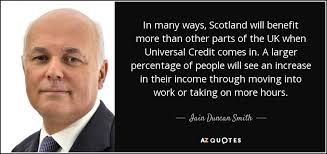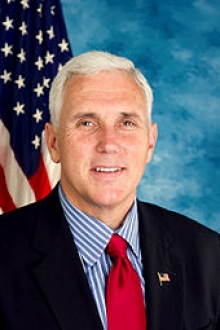Work TV
Watch our TV Channel dedicated to the ‘World of Work’. Explore our video library for informative videos featuring career opportunities at leading companies, franchising opportunities, further education and recruitment professions and their services.
Simon Collyer
Benoit Hamon - French Socialist Politician Backs Unconditional Basic Income
French Socialist party primary winner Benoit Hamon is backing the Unconditional Basic Income idea.
The income plan he has outlined from the BBC would be put into effect in three stages.
First, the current minimum welfare payment for France's poorest would be increased by 10% to €600 (£515; $640) a month
The payments would then be extended to all those from 18-25 years’ old
Finally, the programme would be rolled out to all French citizens sometime after 2022, with the monthly payment increased to €750 a month.
Government Responds to Committee's Jobcentre Plus Concerns And Recommendations
Commenting on the Government response to the Committee’s report on The future of Jobcentre Plus, Committee Chair Rt Hon Frank Field MP said:
“We remain concerned that the success of the DWP’s reforms to Jobcentre Plus are increasingly predicated on the performance and capability of Work Coaches. They are being asked to play both good cop in coaching and bad cop in sanction referrals. Moreover, they are being given greater personal autonomy to make judgements, while taking on a higher workload including a far larger proportion of complex and difficult cases. This is a major risk to the Department’s performance.”
Full inquiry details: The Future of Jobcentre Plus
Committee Membership is as follows:
Frank Field (Labour, Birkenhead) (Chair); Heidi Allen (Conservative, South Cambridgeshire); Mhairi Black (Scottish National Party, Paisley and Renfrewshire South); Ms Karen Buck, (Labour, Westminster North); James Cartlidge, (Conservative, South Suffolk); Neil Coyle (Labour, (Bermondsey & Old Southwark); Richard Graham (Conservative, Gloucester); Luke Hall, (Conservative, Thornbury and Yate); Craig Mackinlay (Conservative, South Thanet); Steve McCabe (Labour, Birmingham Selly Oak); Royston Smith, (Conservative, Southampton Itchen)
The Alleged Views of Michael R. Pence US Vice President
According to Wikipedia:
US Vice President Mike Pence supported President George W. Bush's unsuccessful 2005 proposal to partially privatize Social Security by allowing workers to invest part of their Social Security payroll taxes in private investment accounts and reduce the increase in benefits for high-income participants. Pence had previously proposed a similar but more aggressive reform plan than Bush's.
When asked in 2010 if he would be willing to make cuts to Social Security, Pence answered, "I think everything has to be on the table.When asked if he would raise the retirement age, he said, "I'm an all-of-the-above guy. We need look at everything on the menu.
DWP Select Committee Progress in Introducing Universal Credit Examined
The Work and Pensions Committee holds a one-off evidence session and hears from experts and representatives from charities, landlords and local authorities on progress in introducing Universal Credit and what impact it is having.
Monday 23 January 2017, the Wilson Room, Portcullis House At 4.00pm
Witness
Nick Atkin, Group Chief Executive, Halton Housing Trust
David Finch, Senior Economic Analyst, Resolution Foundation
Mark Fowler, Director of Gateway & Welfare, London Borough of Croydon
Martin Williams, Welfare Rights Worker, Child Poverty Action Group
Focus of the session
The session is likely to focus on the following topics:
How Universal Credit has changed from its original inception, and what effect this has had on its ability to deliver against its aims.
How well Universal Credit supports claimants in a changing economy that includes increased prevalence of zero-hour contracts, self-employment and in-work poverty
The impact on claimants of in-work conditionality, sanctions and receiving a single payment in arrears each month.
The knock-on effect of Universal Credit’s introduction on other organisations, such as local authorities and housing associations
Background
Universal Credit is a single system for people both in and out of work, which replaces six means-tested benefits. Key features of Universal Credit include: the amount payable is adjusted automatically in response to changes in earnings; claimants’ responsibilities in return for payments are set out in a conditionality agreement, and they can lose payments through sanctions if these conditions are not met; and it is paid using a single household payment, made in in arrears each month.
The coalition government announced Universal Credit in November 2010, and since April 2016 it has been available across the country for single claimants. The Government expects to complete the introduction of Universal Credit in March 2022, by when all eligible claimants will have transferred to it.
ABC Comment: This should be a very interesting debate. Universal Credit is way of course. 83% of Housing Benefit Claimants are in arrears.
Universal Credit Live
The DWP have just sent out this press release:
Universal Credit is being introduced in stages across Great Britain by postcode area. Whether you can claim it and the way you manage your claim depends on where you live and your personal circumstances.
Full service
Universal Credit full service is available to all types of claimants in certain areas of Great Britain.
You’re in a full service area if it has an asterisk (*) in the list of jobcentre areas where couples and families can claim Universal Credit.
You will have an online Universal Credit account to manage your claim. You can use your account to report changes, send messages to your work coach and find support.
Eventually all Universal Credit claims will be on the full service and you will have a Universal Credit online account.
Live service
Universal Credit live service is available to:
- all single people across Great Britain, who are not in a full service area
- couples and families with children who live in an area without an asterisk (*) in the list of jobcentre areas where couples and families can claim Universal Credit
You will manage your claim by phone.
Live service claims will eventually move to the full service. You will be notified when this will happen and what you need to do at that time.
Claiming Universal Credit
When you make your claim you’ll be asked for your postcode and then be directed to the right service for you to complete your claim online.
In both services you will always have access to a work coach who can help you with things like:
- finding work
- increasing the hours you work
- getting more prepared for when you are able to work by learning new work skills or life skills
Helping you to improve your income is central to the Universal Credit service.
Reporting changes
How you report changes affecting your Universal Credit claim, such as changing address or adding a child to your claim, will depend on which service you use.
Full service areas
Use your Universal Credit online account to report changes by answering the questions on screen. The online service will also explain how to report changes you cannot report online at the moment.
UK employment rates, ages 16 to 64 (seasonally adjusted), November 2013 to November 2016
Between June to August 2016 and September to November 2016, the number of people in work was little changed, the number of unemployed people decreased, and the number of people not working and not seeking or available to work (economically inactive) increased.
There were 31.80 million people in work, little changed compared with June to August 2016 but 294,000 more than for a year earlier.
There were 23.25 million people working full-time, 209,000 more than for a year earlier. There were 8.55 million people working part-time, 86,000 more than for a year earlier.
The employment rate (the proportion of people aged from 16 to 64 who were in work) was 74.5%, virtually unchanged compared with June to August 2016 but higher than for a year earlier (74.0%).
There were 1.60 million unemployed people (people not in work but seeking and available to work), 52,000 fewer than for June to August 2016 and 81,000 fewer than for a year earlier.
There were 883,000 unemployed men, 8,000 fewer than for June to August 2016 and 41,000 fewer than for a year earlier.
There were 721,000 unemployed women, 44,000 fewer than for June to August 2016 and 40,000 fewer than for a year earlier.
The unemployment rate was 4.8%, down from 5.1% for a year earlier. It has not been lower since July to September 2005. The unemployment rate is the proportion of the labour force (those in work plus those unemployed) that were unemployed.
There were 8.89 million people aged from 16 to 64 who were economically inactive (not working and not seeking or available to work), 85,000 more than for June to August 2016 but 63,000 fewer than for a year earlier.
The inactivity rate (the proportion of people aged from 16 to 64 who were economically inactive) was 21.7%, higher than for June to August 2016 (21.5%) but lower than for a year earlier (21.9%).
Average weekly earnings for employees in Great Britain in nominal terms (that is, not adjusted for price inflation) increased by 2.8% including bonuses and by 2.7% excluding bonuses compared with a year earlier.
Antonio Tajani elected President of the European Parliament
The European People’s Party’s Antonio Tajani has replaced Socialist Martin Schulz as the European Parliament president, after winning 351 votes in the fourth and final round of ballots. Gianni Pittella, his Socialist rival, won 282 votes in the run-off.
Antonio Tajani is the new (born 4 August 1953 in Rome) is an Italian politician and now President of the European Parliament.
The EP (European Parliament) is elected for five years, but the term of office for President, Vice-Presidents, Quaestors and committee Chairs is two-and-a-half years. So the elections are held at the beginning of a parliamentary term and at mid-term.
The election is done using a secret ballot. MEPs mark their preferred candidate on a ballot paper and place the vote in a ballot box, overseen by eight tellers chosen from among MEPs.
A candidate getting an absolute majority of the votes cast (50% + 1) is elected. Blank or spoiled ballot papers are not counted.
If there is no winner after the first ballot, the same candidates or new candidates can be nominated for a second round of voting under the same conditions. This can be repeated a third time if necessary.
If no-one is elected at the third ballot, the two highest scoring candidates go to a fourth ballot, where the winner is decided by simple majority. If there is a tie, the older candidate is declared the winner
Call to Halt Universal Credit Roll-Out And Jobcentre Closures
The Scottish National Party will today (Tuesday) call on the UK Government to halt the roll-out of Universal Credit and planned Jobcentre closures in Glasgow in light of the combined impact Tory social policies are having on low income households.
The roll-out of the Tories’ flagship Universal Credit benefit - which combines six payments into one - has been beset with delays and the average working family in receipt of UC will be more than £1,000 a year worse off by 2020.
The Institute for Government (IFG) thinktank reported that the UC project is six years behind schedule and Citizens Advice said “UC is failing to live up to its promise. Right from the outset people have experienced problems… delays to claims and errors in their payments.” And last year The Resolution Foundation said that UC had “serious design flaws” and had “veered off track”.
SNP MP Drew Hendry, whose Inverness, Nairn, Badenoch and Strathspey constituency was one of the first areas where Universal Credit was introduced, will lead today’s opposition day debate. He said:
“The Tory obsession with austerity continues to punish low income families despite Theresa May’s latest “shared society” slogan. Despite Iain Duncan Smith quitting his role at the Department for Work and Pensions last spring, the Tories’ still haven’t abandoned his failed UC project.
“The reality is that Universal Credit will fail to lift children out of poverty, it will fail to eradicate existing inequalities for families who are already struggling to make ends meet and it will fail disabled people due to the devastating cuts to Employment Support Allowance.
“And on top of these cuts, the DWP plans to slash 50% of the Jobcentres in Glasgow - these proposals are morally outrageous and fly in the face of the Tory promise to “work for the many and not the privileged few”.
“While 85% of welfare spending - including Universal Credit - remains reserved to the UK Government and firmly in Tory hands, the SNP Scottish Government is working to ensure we build a Scottish Social Security Agency with respect and dignity at its core with the powers that we do have.
“The Tories must pay attention to the evidence and bring this disastrous project right back to the drawing board - Theresa May must halt the roll-out of UC and planned Jobcentre closures in Glasgow so that these regressive policies can do no more damage to some of the most disadvantaged in Scotland.”

The Work and Pensions Committee Holds A One-Off Evidence Session Wednesday 18 January 2017
The Work and Pensions Committee holds a one-off evidence session and hears from employers, experts and industry representatives on the potential impact of Britain’s exit from the European Union on UK firms’ ability to recruit the workers they need.
Witnesses
Wednesday 18 January 2017, Wilson Room, Portcullis House
At 9.30am
- * Beverly Dixon, Group HR Director, G’s Group
- * Susanna Rendall, Managing Director, The Boxford Group
- * Nicolas Roach, Chairman, Nicolas James Group (owner Harbour Hotels Group)
- * Matthew Sumner, Managing Director, Midas Care
At 10.15am
- * Andrew Clark, Director of Policy, National Farmers’ Union
- * John Guthrie, Employment Policy Adviser, British Hospitality Association
- * Heather Rolfe, Associate Research Director, National Institute of Economic and Social Research
- * Laura Smith, Communications Manager, Build UK
Focus of the session
The session is likely to focus on the following topics:
- * Which sectors would be most affected by an end to the free movement of EU-national workers, especially in respect of seasonal or semi-skilled labour
- * The potential for workless UK nationals to fill gaps in the workforce caused by future restrictions to the inflow of EU workers
- * The DWP’s role in identifying sectoral recruitment needs – in terms of volumes and skill levels – to inform Government’s Brexit negotiation objectives and the UK’s subsequent migration policy
- * Scope for DWP involvement in the reintroduction of sector-specific temporary visa schemes – such as the previous seasonal agricultural workers scheme – to maintain efficiency of labour supply to the UK economy while enabling the Government to manage the volume of long-term migration
Background
Unemployment in the UK currently stands at 1.6 million (4.8%), the lowest level in over a decade. Free movement of EU nationals into the UK to work has provided UK employers with an abundant pool of labour to meet recruitment needs across many sectors and at a variety of skill levels. Alongside the substantial increase of EU nationals employed in the UK since 2004, the proportion of UK nationals in employment has risen to its highest level in at least two decades.
It has been suggested that potential restrictions in the supply of workers from abroad, at a time of relatively low spare capacity in the UK labour market, could lead to labour market pressures that impinge on economic growth and efficiency. The Committee hears from a range of business voices representing sectors with a relatively high migrant workforce from the EU and examines the DWP’s role in identifying and addressing this challenge.
Notes to eds:
Committee Membership is as follows:
Frank Field (Labour, Birkenhead) (Chair); Heidi Allen (Conservative, South Cambridgeshire); Mhairi Black (Scottish National Party, Paisley and Renfrewshire South); Ms Karen Buck, (Labour, Westminster North); James Cartlidge, (Conservative, South Suffolk); Neil Coyle (Labour, (Bermondsey & Old Southwark); Richard Graham (Conservative, Gloucester); Luke Hall, (Conservative, Thornbury and Yate); Craig Mackinlay (Conservative, South Thanet); Steve McCabe (Labour, Birmingham Selly Oak); Royston Smith, (Conservative, Southampton Itchen)
World Economic Forum Davos
Economic inequality is increasing across the globe, per a report released Monday by the World Economic Forum.
The Inclusive Growth and Development Report 2017 also said median per capita income fell by 2.4 percent among people in the world’s richest nations and that growth in those nations slowed to a crawl. The figures reflected the years 2008-13.
The report ranked nations with an Inclusive Development Index (IDI) designed to determine whether economic gains largely benefited the country’s wealthiest people or the growth was spread among the larger population. The United States ranked 23rd out of the nation’s most advanced economies in that regard, one spot above Japan. Other countries that were cited as faring poorly when it came to inclusiveness included Brazil, Ireland, Mexico, Nigeria and South Africa.
Per the report, the United States ranked 29th out of 30 in net income inequality, 29th in wealth inequality and 28th in poverty rate. The U.S. did, however, rank No. 4 in median income.
The top five advanced nations in the IDI were Norway, Luxembourg, Switzerland, Iceland and Denmark — European nations all considerably more homogenous than the United States. Norway, per the report, “saw living standards rise by 10.6 percent over 2008-13 while the economy grew only 0.5 percent.”
In the report, the World Economic Forum said it was “proposing a shift in economic policy priorities to respond more effectively to the insecurity and inequality accompanying technological change and globalization.”
The wide-ranging report graded countries on an assortment of social and economic indicators.
The annual meeting of the World Economic Forum in Davos, Switzerland, starts Tuesday.























